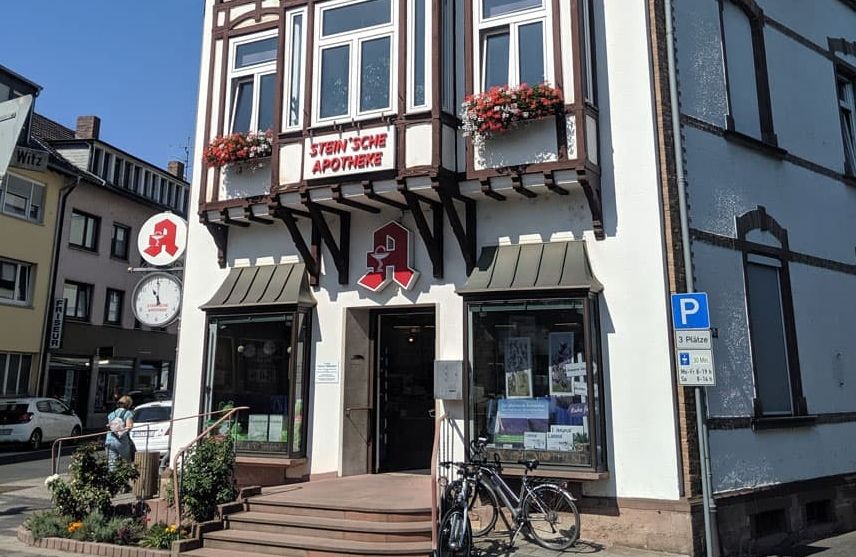Germany is looking for a distributor to service the government’s cannabis agency.
The winning company will be responsible for shipping all domestically produced medical cannabis flower to pharmacies.
The requirements and awarding criteria for the post indicate that companies with experience distributing narcotic drugs – and those able to offer a low price for their services – will have the highest chances of winning. No cannabis-specific experience is required.
The deadline to submit the applications, which must be filed electronically, is April 28.
The winner will provide the services from September 2020 until the end of 2025, at the latest.
This does not directly affect imported medical marijuana distribution, which is expected to continue as usual. The application process only pertains to distribution of domestically grown cannabis.
It is expected that domestically produced flower will be cheaper than the imported product currently sold, which means once German-grown flower reaches pharmacies, it could bring average prices down.
However, given current growth in demand, domestic grows are unlikely to provide enough cannabis, and imports will continue to be necessary.
Domestic grows
Pursuant to the German reform of medical cannabis in March 2017, a government cannabis agency was created under the German Federal Institute for Drugs and Medical Devices (BfArM), as mandated by the 1961 Single Convention on Narcotic Drugs.
The cannabis agency is tasked with managing and controlling domestic cultivation and its distribution in Germany.
In April and May 2019, the BfArM confirmed that Canadian license holders Aphria and Aurora – along with German cannabis company Demecan – were the only three domestic growers.
Combined, the three companies expect to produce 2,600 kilograms (5,732 pounds) of pharmaceutical-quality cannabis flower per year over a four-year period. They can only sell their product to the cannabis agency, at the price offered during the application process.
Products will then need to be distributed to pharmacies, and this is the role a distribution service provider will play.
The price at which the agency will buy from the growers is specific to each of the 13 tendered lots, of which Aurora and Aphria have five each and Demecan has three.
In a previous disclosure, the German government said it expects to pay about 2.3 euros ($2.63) per gram, on average.
The price pharmacies pay will be higher, because the markup by the distribution partner will have to be included, plus a markup by the cannabis agency to cover its costs. Even after those markups are included, prices are expected to be well below what pharmacies currently are paying, which is generally almost 10 euros per gram.
Retail price is approximately double the pharmacy purchase price.
Only three “types” of medical marijuana will be grown in Germany:
- “Type 1” has between 18% and 22% THC and less than 1% CBD. Aurora will produce 1,000 kilograms of Type 1 cannabis, Demecan 400 kilograms and Aphria 200 kilograms per year.
- “Type 2” has between 12% and 16% THC and less than 1% CBD. Aphria will produce 400 kilograms of Type 2 and Demecan will produce 200 kilograms per year.
- “Type 3” has between 5% and 9% THC and between 5% and 9% CBD. Aphria will produce 400 kilograms of Type 3 cannabis per year.
Growers must deliver at least 80% of the agreed-upon quantities. Certain scenarios in which the cannabis agency buys more than 100% of the agreed quantities are possible.
The first delivery is expected in October 2020.
The agency believes packaging will primarily consist of 50-gram containers. The locations from which the distributor will have to pick up the products will be:
- Aurora facility in Leuna, Saxony-Anhalt (eastern Germany).
- Aphria facility in Neumünster, Schleswig-Holstein (northern Germany).
- Demecan facility in Ebersbach, Saxony (eastern Germany).
Harvested product will not be transported to the BfArM, nor will they be stored there. The agency remains the owner of the flower throughout the distribution process, with the distributor being a service provider.
Distribution applications
Applicants to become Germany’s distribution service provider for medical cannabis must offer a price per gram, and if all the requirements are fulfilled, the lowest price will be the determining factor to win the contract.
Offers will be considered using up to three decimal places.
The contractor will provide the following services to the cannabis agency:
- Setting up a distribution and logistics system for the supply of the products to pharmacies.
- Processing commercial orders, including invoicing.
- Picking up the products from the producers’ locations, inspecting them and delivering them to the buyers.
- Storage for later distribution.
- Organizational processing in case of batch recalls and return of cannabis to the producer for destruction.
- Documentation obligations related to the Medicinal Products Act (“Arzneimittelgesetz” – AMG) and the Narcotic Drugs Act (“Betäubungsmittelgesetz,” BtMG ).
- Communication with the cannabis agency and other miscellaneous tasks.
Requirements
Applicants must have a registered company compliant with relevant AMG and BtMG legislation. They must prove prior experience distributing narcotics medicines – subject to AMG and BtMG requirements – from Jan. 1, 2017, until the end of the application process. (A minimum delivery of 10,000 packages of narcotic drugs in a 12-month period could be required.)
Prior distribution experience must include storage, transport and delivery to pharmacies and other customers. The sale did not need to be made in the bidder’s name. Qualifying documents may be from another country.
Other requirements of the application process include:
- Specification of the technical specialists to be employed, stating their qualifications in order to meet the requirements of the AMG and BtMG.
- A declaration that the bidder already has the required storage and other necessary business premises – compliant with the AMG and the BtMG – at disposal or will have them if their application is selected.
- A statement showing the average annual number of employees of the company, along with the number of managers in the past three years.
- A business liability insurance policy with certain minimum conditions – or a declaration that such insurance would be contracted in case of winning the distribution contract.
- An indication of which parts of the contract the applicant may intend to subcontract.
- Good distribution practices audit with no significant deficiencies found.





